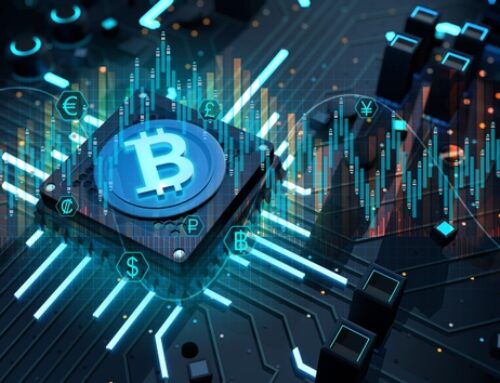Has Google burst the Nvidia bubble?
November 26, 2025
Nvidia CEO Jensen Huang saw Nvidia traded down by 3% following the news of Meta discussions with Google
(Image credit: Stefani Reynolds / Bloomberg / Getty Images)
Meta is in talks to shift part of its AI infrastructure to Google-made chips, instead of ones made by Nvidia, in a deal worth billions of dollars that could permanently upend the world of tech.
This has been a “rocky couple of weeks” for Nvidia, said Brent D. Griffiths in Business Insider. Following reports of the Meta deal, Nvidia was trading down by more than 3%, and “lingering doubts” about the company surrounding the AI bubble are beginning to “creep back in”.
Nvidia customers have been crying out for “more competition” in the chip market, and one “may have been hiding in plain sight”, said Dina Bass in Bloomberg. Google’s tensor processing units (TPUs) were first released 10 years ago, and are ideally suited to generating responses to ChatGPT or Claude, said the outlet. They are “less adaptable” and “more specialised” than Nvidia’s graphics processing units (GPUs), but crucially they offer a “less power-hungry” system at a lower cost. Google’s advancements “underscore how major AI names are embracing TPUs as they race to add computing power to cope with runaway demand”.
Sign up for The Week’s Free Newsletters
From our morning news briefing to a weekly Good News Newsletter, get the best of The Week delivered directly to your inbox.
From our morning news briefing to a weekly Good News Newsletter, get the best of The Week delivered directly to your inbox.
Google has “pierced Nvidia’s aura of invulnerability”, said The Economist. Until now Nvidia has seemed “unassailable”, as investors bid shares “into the stratosphere” to cement its market dominance. With this move, Google has shifted from one of Nvidia’s biggest customers, to its “fiercest competitor yet”. Though the technology is still catching up to the market-leader, Google’s chips cost between “a half and a tenth” as much as the Nvidia equivalent. That being said, while Nvidia “no longer looks as invulnerable as it once did”, its strength of product, and position in the market, “should not be underestimated”.
Nvidia must be “spooked” by the Google announcements if it is posting online to “defend itself”, said Eva Roytburg in Fortune. Nvidia asserted that it is a “generation ahead of the industry” and “the only platform that runs every AI model and does it everywhere computing is done”, on X. “It’s not hard to read between the lines,” said Fortune: Nvidia wants investors and customers to know that “it still sees itself as unstoppable”.
This may represent one of the “biggest threats” to Nvidia’s market dominance, but there is a long way to go until a “potential crack” materialises, said The Wall Street Journal. To challenge Nvidia, Google must start “selling the chips more widely to external customers”, which is not an easy feat.
What next?
The deal between Meta and Google could be worth “billions of dollars”, though this is not a fait accompli, as ongoing talks “may not result in one”, said The Wall Street Journal. Both Google and Nvidia are “courting potential customers”, offering “financing arrangements” to make the rollout of their chips a more attractive prospect. It is “still up in the air” how Meta would use these chips, either to train AI models or generate responses to queries via inference (which requires a lot less computational power than training).
Sign up for Today’s Best Articles in your inbox
A free daily email with the biggest news stories of the day – and the best features from TheWeek.com
“No one, including Google, is currently looking to replace Nvidia GPUs entirely”, said Bloomberg. The pace of AI development doesn’t allow it. There is a gap in the market for Google’s products, as companies look to “temper” the “dependence” on Nvidia to mitigate shortages, but ultimately, Nvidia’s GPUs are “better suited to handle a wider range of workloads” and more adaptable to wholescale change. The “best hope” for Google’s TPUs is that they form a part of the “basket of products required to power the growth of AI”.
Search
RECENT PRESS RELEASES
Edward Jones’ Mahajan Sees ‘Benign’ Market Environment in 2026
SWI Editorial Staff2025-11-26T08:46:47-08:00November 26, 2025|
Drug-resistant bacteria and genes found to move freely among people, animals and the envir
SWI Editorial Staff2025-11-26T08:46:13-08:00November 26, 2025|
Indian Power Regulator Urged to Delay Stricter Clean Energy Rules
SWI Editorial Staff2025-11-26T08:44:38-08:00November 26, 2025|
Hundreds of Thousands of Bay Staters Have Switched to Clean Energy. Report Suggests How Mo
SWI Editorial Staff2025-11-26T08:44:14-08:00November 26, 2025|
Indian Power Regulator Urged to Delay Stricter Clean Energy Rules
SWI Editorial Staff2025-11-26T08:44:14-08:00November 26, 2025|
A climate agenda under strain
SWI Editorial Staff2025-11-26T08:43:53-08:00November 26, 2025|
Related Post




